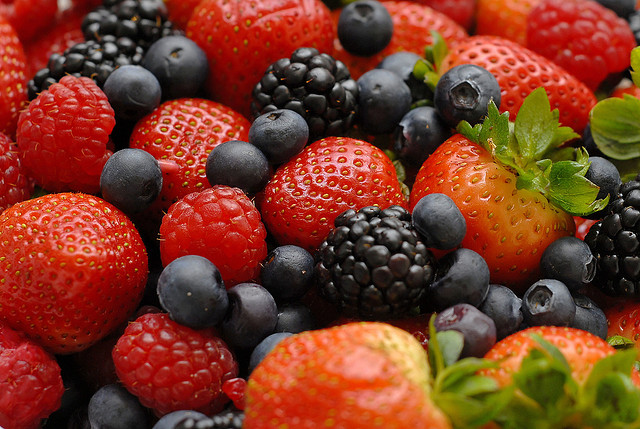Two studies in the past few years provide the best evidence to date that a largely plant-based diet, with moderate amounts of fish and dairy—a Mediterranean diet—can help keep one’s brain healthy and reduce risk of Alzheimer’s.
Researchers who studied the MIND diet, a kind of Mediterranean diet, which calls for eating more berries and leafy green vegetables, found that even following the diet moderately reduced participants’ risk of developing Alzheimer’s disease by 35% over the four and a half years. In short, they found that you do not need to eat bushels of kale or spinach. Two servings of vegetables daily, two servings of berries each week, and one meal of fish each week seemed to be enough. At the same time, you do need to eat less unhealthy food, such as butter and fast food. Those who followed the diet more rigorously reduced their risk of developing Alzheimer’s by 53%.
In the MIND study, researchers observed people’s dietary intake over time. This type of study can’t say anything about cause and effect, which can only be learned by dividing people into groups and randomizing some to follow the diet and some not (a control condition). Researchers in Spain completed just such a study.
The Spanish researchers showed that those randomized to follow a Mediterranean diet, which they combined with either extra olive oil or nuts, showed improved measures of memory and other brain functions. The participants were tested after a median of four years on the diet. Although they had no memory or other cognitive problems to begin with, they did have risk factors for heart disease, such as smoking, diabetes and obesity.
The food included in a Mediterranean diet is rich in antioxidants and anti-inflammatory compounds, which many studies have shown are good for heart health, and decreasing risk factors like high blood pressure and diabetes. Since these are also risk factors for Alzheimer’s disease and other dementias, this is one reason why eating lots of foods high in anti-oxidants and anti-inflammatory compounds helps preserve brain function. Berries, dark, leafy green vegetables, and nuts are especially high in antioxidants and anti-inflammatory action.
________________________
This post was originally published on June 10, 2015.
Here’s more from Just Care:

Leave a Reply